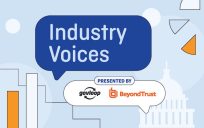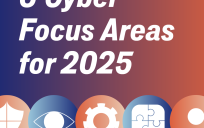Welcome to GovLoop Insights Issue of the Week with Chris Dorobek… where each week, our goal is to find an issue — a person — an idea — then helped define the past 7-days… and we work to find an issue that will also will have an impact on the days, weeks and months ahead. And, as always, we focus on six words: helping you do your job better.
A busy week on GovLoop Insights’ DorobekINSIDER…
- We talked about the Digital Government Strategy. Yes, we know many agencies are not flush with extra money to roll out new initiatives. But we spoke to GSA about its role coordinating and bringing folks together to solve problems… to build once and use many times.
- We also talked about BYOD — Bring your own Device. It was a concept that seemed totally… well, let’s be honest, it seemed like a pipe dream just a little bit ago. But now it is becoming a reality in some ways… and some are finding that it saves money. The Equal Employment Opportunity Commission is testing it out and we got to talk to that agency’s CIO about the challenges and lessons learned.
- We talked about how to be a successful CIO these days. It’s not easy. We spoke to Evan McDonnell for his assessment.
- We got to talk about veterans — most people immediately think that veterans are men. But that’s changing. There are more and more women among the ranks of veterans and they can need different care. One fed — has made it her mission to remember women veterans.
There were a number of issues that we assessed as we worked to select the GovLoop Insights’ Issue of the Week…
This week, we learned a lot about the use of cyber-warfare and cyber-weapons. There has been much talk about the U-S government using cyber-warfare against Iran, and specifically the Stuxnet worm, much of it coming from David Sanger’s new book, Confront and Conceal: Obama’s Secret Wars and Surprising Use of American Power were warnings from many experts about what the use of those weapons might mean. The man who discovered new new Flame virus this week warned about the use of these tools… weapons. Eugene Kaspersky, the founder of Europe’s largest antivirus company, called cyberweapons the most dangerous innovation of this century
This week was also the week of Health Datapalooza, where people gathered to figure out what can be done with all that health data.
The Pew Research reported on the partisan divide in our country — and that divide has enormous implications for government. One of issues that divides us the most: government performance and scope. Click on the image to enlarge it.
The Wisconsin elections took place. And The Washington Post notes that has put public workers in both the fiscal and political bull’s eye. From California to Pennsylvania, workers are facing efforts to sharply curtail the job security and benefits they have enjoyed for years, perks long viewed as compensation for the sometimes lower salaries in the public sector.
But our issue of the week... with Memorial Day behind us — it’s time to focus on your summer reading list. And your summer reading doesn’t just have to be trashy romance novels. You can actually learn something. Tom Fox is the Vice President for Leadership and Innovation at the Partnership for Public Service. He’s compiled his list of great summer reading books that focus on leadership ideas, tools and techniques. Tom started off telling us about a book by Colin Powell called, It Worked for Me: In Life and Leadership.
- It Worked for Me: In Life and Leadership by Colin Powell: With his decorated military experience, principled leadership at the Department of State and experience working with both the private and nonprofit sectors, Powell is considered a leadership role model among a large number of the federal leaders and employees whom I have come into contact with over the years. In his book, Powell shares lessons learned from his public service career, including his “Thirteen Rules,” which range from “Get mad, then get over it,” to “Don’t let adverse facts stand in the way of a good decision.”
- How Will You Measure Your Life? by Clayton Christensen: Based on his popular Harvard Business Review article, innovation expert Christensen asks readers to answer some deceptively simple questions about fulfilling work, family relationships and ethics that may cause federal managers to reexamine their approach to life at work and at home. To help provide insight, Christensen shares lessons from some of the world’s greatest business leaders.
- Start with Why: How Great Leaders Inspire Everyone to Take Action by Simon Sinek: Based on a TED Talk he delivered that went viral, Sinek offers ideas for how leaders can better communicate their vision and connect with their employees. Sinek examines leaders who’ve had great influence — from Dr. Martin Luther King, Jr. to the Wright Brothers to Steve Jobs — and finds that despite the differences in their times and missions, they all think, act and communicate in the same way. This book can be a great resource for federal leaders who are trying to find classic ways of inspiring their teams and keeping them focused on achieving their agencies’ goals and mission.
- Talk Inc.: How Trusted Leaders Use Conversation to Power Their Orga… by Boris Groysberg and Michael Slind: This book provides tips for how leaders can communicate more effectively by making their agency’s culture more intimate, interactive, inclusive and intentional. At the heart of the book is the fundamental idea that the power of conversation can help drive employee engagement.
- Immunity to Change: How to Overcome It and Unlock the Potential in … by Robert Kegan and Lisa Lahey: Given the difficult budget environment facing federal managers, you may be struggling with how best to adapt to the changing landscape both personally and organizationally. This book looks at the barriers to fundamental change and why crucial change efforts fail. It offers ways for leaders to overcome their resistance to change and transform both their life and their work.
Weekend Reads:
- What can you learn from the hacker group Anonymous? The author a new book writes in Forbes that says one of the lessons: Be fluid, not formal. Anonymous is a great example of the growth of the leaderless, decentralized organizations. We have a link to the full list — and the book — We Are Anonymous: Inside the Hacker World of LulzSec, Anonymous, and the Global Cyber Insurgency
- Speaking of being innovative, it’s not just a challenge for government. It is also a challenge for organizations that you think of as perennially innovation — yes, Google, Apple, Facebook. At the 10th anniversary of the D: All Things Digital conference earlier this month, the old and new slammed up against each other in ways that were both familiar and altogether different. The key dynamic in the tech industry may not be old vs. new. Instead, think old plus new, the Wall Street Journal reports.
- The New York Times Magazine from last weekend — they have 32 Innovations That Will Change Your Tomorrow – It just may spur some interesting thoughts.




Leave a Reply
You must be logged in to post a comment.